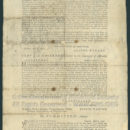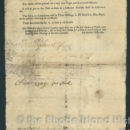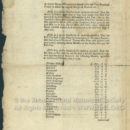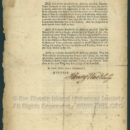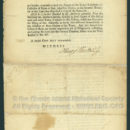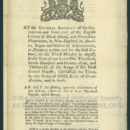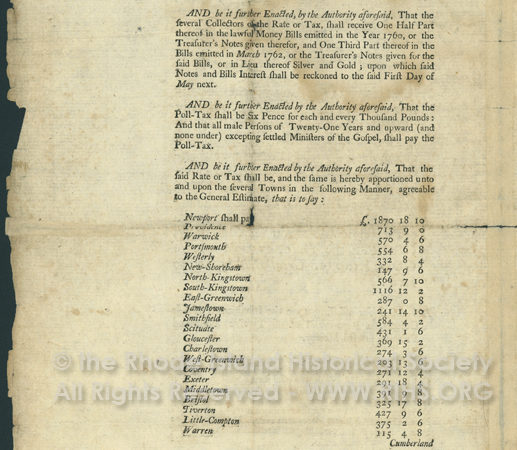
This summer, the Rhode Island Historical Society’s Collections department is excited to host an undergraduate Arts Intern from the Studio Institute, Debby de Afonseca. Debby’s project will include work at both the John Brown House Museum on our museum collections as well as extensive research at the Robinson Research Center. Each week we will feature a blog post by Debby which will include updates on her project and insights on interesting objects in our collections not often seen by the public!
My name is Debby de Afonseca, I am a student at Rhode Island College and I’m majoring in Art History. This summer I am interning at the Rhode Island Historical Society as a Collections and Research intern. I will be choosing seven objects from the John Brown House Museum collections and doing research on them at the Robinson Research Center. Each week I will be writing a blog post on the objects I have researched. I am very excited to share my first blog post!
These AN-6530 goggles were donated to the Rhode Island Historical Society in 1981. The goggles were donated to the Historical Society by William Slater Allen, who was born in Providence, RI in 1904. His parents were Philip Allen (1869-1951) and Helen Slater Reed Allen. He was married in 1929 to Elizabeth Grimmel Lawrence Allen ( 1907-1985). According to records of correspondence (1916-1959) between William Slater Allen and Philip Allen, we know that William Slater Allen attended St. Mark’s High School and graduated from the Yale University Sheffield Scientific School. This correspondence also states that during a period of time William Slater Allen was the director in the Providence National Bank. Census records also show that in the 1930s he had the title of Salesman in the Steam supply industry and in the 1940s he was an engineer in the mill industry. The Allen & Reed records (MSS 95) held by the Rhode Island Historical Society also show that William Slater Allen served as president of Allen & Reed company.
“In 1947 W. Gordon Reed died and Philip Allen, treasurer of the company, was near retirement. The company had little inventory and was faltering, therefore it was reorganized as A, Inc., a company that was started to provide Philip Allen with income and employment. The property and inventory would be purchased by a new company, Allen and Reed Company with Philip Allen’s son, William Slater Allen (1904-1991) as president.”
In the Allen, Philip-William Slater correspondence held at the Mary Elizabeth Robinson Research Center, there are records confirming that during World War II William Slater Allen was a Lieutenant Commander in the USNR, of Windy Meadows Farm. He served as an operations officer for the Night Fighter Training Unit in 1943 and 1944. Allen was a consulting engineer who for several months was assigned to Project Affirm which worked to solve technical problems involving aircraft night fighting, such as how to improve pilot vision and the conditioning and training of night fighter pilots. The AN-6530 goggles were very likely used by him during his time working on Project Affirm.

~Debby de Afonseca, Collections and Research Intern
Bibliography
“Acme Depot Showcase #1.” The Type A-2 Flight Jacket Web Page. Accessed June 20, 2018. http://www.acmedepot.com/showcase/showcase1.html.
Home – Rhode Island Historical Society. Accessed June 21, 2018. https://www.rihs.org/mssinv/Mss095.htm
Ancestry.com. U.S. Passport Applications, 1795-1925 [database on-line]. Lehi, UT, USA: Ancestry.com Operations, Inc., 2007.
Ancestry.com. Rio de Janeiro, Brazil, Immigration Cards, 1900-1965 [database on-line]. Lehi, UT, USA: Ancestry.com Operations, Inc., 2016.
Further Reading:
Maguire, John A. Silver Wings, Pinks, and Greens – Uniforms, Wings & Insignia of Usaaf Airmen. Schiffer Publishing, 1997.
Gear Up!: Flight Clothing & Equipment of USAAF Airmen in WWII (Schiffer Military/Aviation History) Hardcover – April 1, 1995, by
Bianchi, Mathieu. Flight Gear: Flying Clothing and Equipment of the US Army Air Forces in Europe 1942-45. Paris: Histoire & Collections, 2013.

